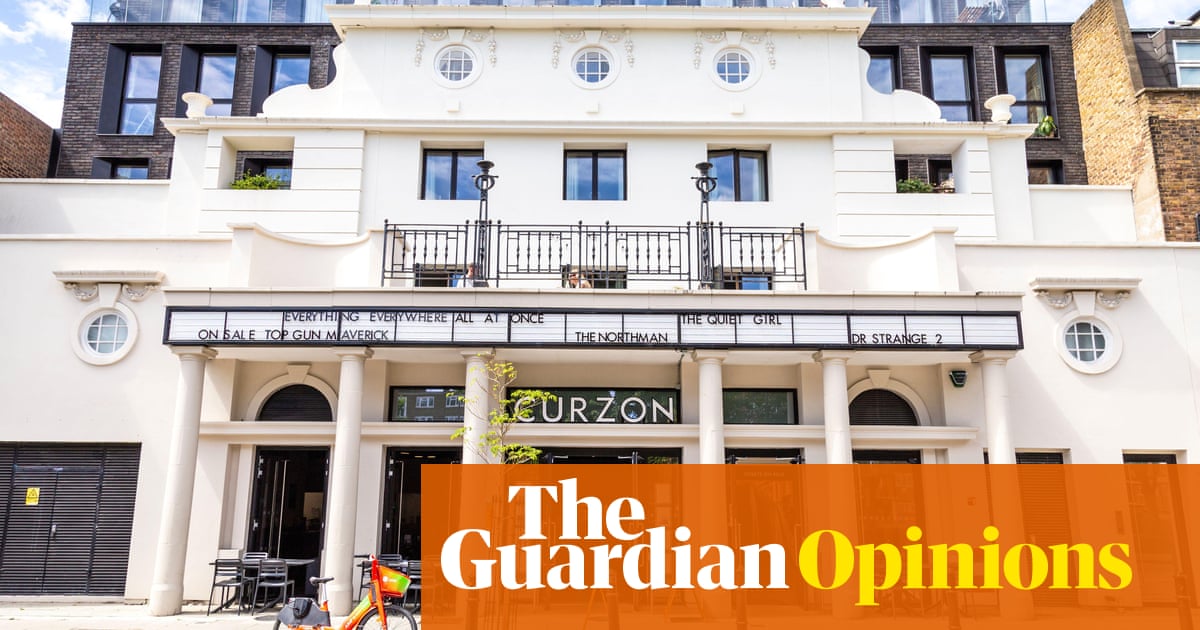Who wants to buy an arthouse cinema chain? That question may seem unexpected now that being depressed about post-pandemic filmgoing appears to be the industry’s default position. But the sale of the Curzon cinema group to New York investment company Fortress – part of a foreclosure auction of assets belonging to current American owner Cohen Realty Enterprises – has been met with a lack of surprise, still less alarm, in the industry and within the Curzon group itself, who reportedly regard the new owner as more likely to invest and to nurture long-term growth than the current proprietor. Fortress bid $5m [£3.9m] for Curzon, and insiders are calling it a “bargain”.
This is one of the UK’s prestige cinema companies with a history going back to 1934, now with 350 employees, 16 venues and 58 screens. It consolidated its position in the arthouse marketplace with its acquisition of Artificial Eye in 2006 and the launching of a streaming service in 2010 and this integration was boldly masterminded by its outgoing CEO Philip Knatchbull, the dapper, urbane leader with a movie-aristocrat and actual-aristocrat background – he is the son of producer John Brabourne and grandson of Lord Mountbatten. Knatchbull announced his stepping-down last year but is expected to stay in post until this month, and the Fortress sale would appear the right moment to go.
The truth is that distributing world cinema hits and European festival favourites to discerning filmgoers in UK city locations is not a loss-leading enterprise or charity case. Niche it may be, compared with Hollywood; but it is profitable, or can be. Curzon had a big success with Alice Rohrwacher’s La Chimera starring Josh O’Connor, which ran for an extraordinary 18 weeks at London’s Curzon Bloomsbury cinema, a great run in a film marketplace where films can be brutally yanked after less than a week. It had a hit too with Kneecap, the Northern Irish hip-hop comedy in which Curzon had also invested at development stage. And its success also with the heartwarming Iranian drama My Favourite Cake shows that non-superhero films can and do make money. These are films which skew toward the boomer demographic, a more prosperous (possibly smugly so) consumer group who will turn out for arthouse films in agreeable, well-appointed venues where ticket prices are in fact still less than those for live theatre and Premier League football.
There is a lingering issue, though. The flagship Curzon Mayfair cinema in London, a Grade II listed building, is wanted by its landlord, the Jersey-based company 38 Curzon Lease, to be redeveloped as a cinema-slash-dining venue which would not be operated by Curzon. Curzon has lodged objections to Westminster City Council on the grounds of its historic and cultural importance as an officially designated “asset of community value”.
The new proprietor may be in favour of keeping the Curzon Mayfair, but of course they are the lessee, not the owner, so this is far from cut and dried. I myself have happy memories of taking to the stage at this historic cinema, with Kylie Minogue and director Leos Carax for a somewhat surreal question-and-answer event after his film Holy Motors. We can never be sure of these things, but the Curzon sale may be good news.

